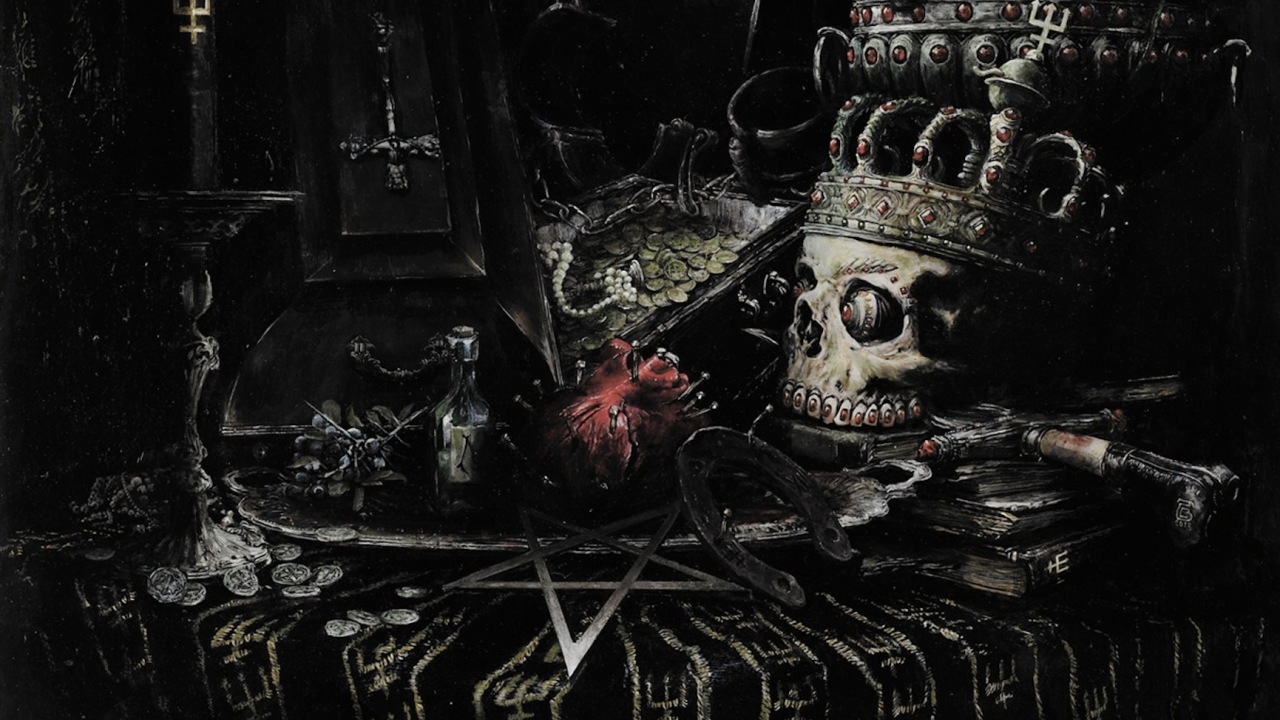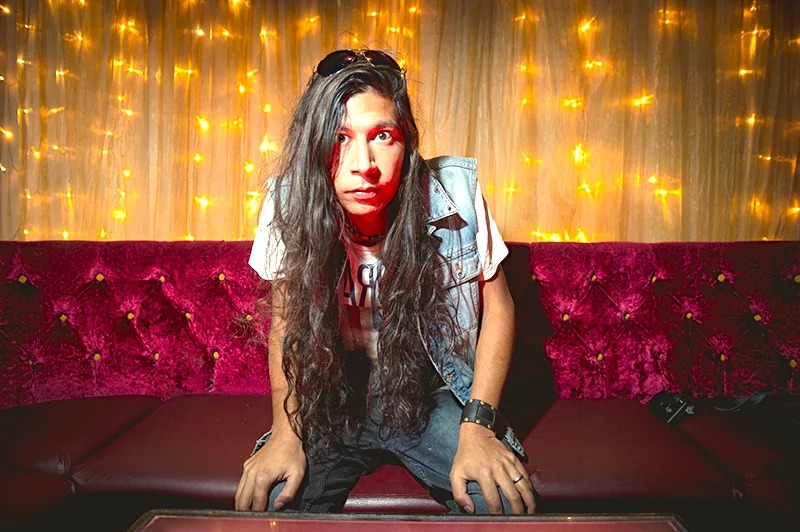It’s been 15 years since Watain came kicking and screaming into this world, born in Uppsala just north of the Swedish capital with the sole intent of filling every room with the repugnant stench of death and a choking mist of blood. In that time, they have become one of extreme metal’s deadliest mercenaries, casting noxious spells on the ears and eyes of everyone they encounter. The Wild Hunt embodies not only the most anticipated heavy record of this year, but also the most important album of Watains’s career: one which will see them rise into the mainstream or cast back into the pits of the underground.
Opening track Night Vision fades in with clean guitars. Yup, you read that right. And those are followed by swirls of strings, acoustics and accordions – rich and majestic yet suspenseful and ominous, marking a change from the usual spike of their blackened punk tornado. When the storm eventually crashes, it’s mid-tempo and grandiose rather than frenetic and furious. Already Watain seem to be making a statement, and just as we’re warming to the ethereal ambience, it all changes.
The pinched harmonics and neo-classical trills of De Profundis have more than a touch of late 90s Emperor to them, in addition to the dissonance inherited from their countrymen in Bathory and Dissection. Like death calling in the distance, Erik Danielsson’s cries of despair evoke a cold shiver as they resonate through the nightmarish tunnels of misery and scorn. Black Flames March is the sound of your brain getting burnt by the fires of hell as you lie crucified on a flaming trident, and one of the most unsettling tracks Watain have put their name to. The pounding rhythms and bludgeoning guitars reek of blood and war, drawing inspiration from movie soundtracks to drive further depth into their blackened reign of doom.
And these spire-high ambitions are met by crystal clarity and the most lavish production they’ve been afforded yet, meaning this is the most accessible Watain have ever sounded. Not that any of their venom has diminished. Erik still snarls and hisses with more spite than any of his peers. You can almost taste the rotting flesh around you as his necromantic chants attempt to wake the dead in a whirlwind of hate.
Halfway into the record comes its biggest surprise. Inspired by Cormac McCarthy’s western novel Blood Meridian, They Rode On is part cowboy song and part gothic ballad, and the furthest Watain have ever ventured outside their usual realms of bleak morbidity. A torch-bearing pilgrimage of self-discovery sung entirely in clean vocals, we are given the unusual insight into a vulnerability this band have never shown before. And that’s not all; Outlaw sounds like Rammstein headlining a festival in Mordor, whilst the Arabic waltz of Holocaust Dawn casts a perplexing haze of eastern mysticism.
With more texture than anything Watain have recorded before, The Wild Hunt is the sound of Sweden’s deadliest soldiers of the night bringing their darkness closer to the light of day. Run for your lives.

